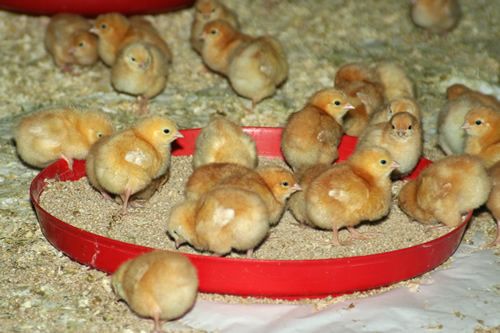
The Environment Agency has been accused of acting like Big Brother by pressuring hatcheries into enforcing IPPC rules on customers
Hatcheries have been receiving letters from the Environment Agency, warning that they could face prosecution unless they ensure that customers who require an IPPC permit have, in fact, obtained one. Steve Carlyle of Country Fresh Pullets is unhappy at the Environment Agency’s approach. "It’s getting to be like Big Brother when we are expected to report on our customers," said Steve, who is a co-opted member of the council of the British Free Range Egg Producers’ Association (BFREPA).
The IPPC (Integrated Pollution Prevention and Control) regulations are intended to control environmental impact on air, land and water. On farms they are meant to reduce the impact of emissions from manure and litter, effluent discharges, odour and noise through a series of management techniques. Any unit with more than 40,000 poultry places must have an IPPC permit, and in order to obtain a permit a unit must demonstrate that it has developed plans to control emissions.
The IPPC regulations were introduced by the European Union and they are enforced in this country by the Environment Agency. One of the letters sent to hatcheries by the agency has been obtained by the Ranger. It was posted in January this year and reads, "We understand that you supply chicks to farms rearing poultry. As such we would like to alert you to the following: it is an offence to operate an intensive farming operation rearing poultry with more than 40,000 places without an environmental permit, it is also an offence to breach a condition of a permit."

The letter then warns that hatcheries could also be liable under the rules for supplying a farm that does not have a required permit. It says, "Under Regulation 38(6) if any offence is committed due to the act or default of some other person, that other person is also guilty of the offence and liable to be proceeded against and punished accordingly, whether or not proceedings for the offence are taken against the first-mentioned person.
"This means that supplying over 40,000 chicks to a site without a permit, or supplying chicks above a farm’s permitted numbers, could lead to action being taken against the supplier."
"I would strongly advise that, even if you have an agreement with the site operator to supply the farm with 40,000+ birds, you ask for confirmation that there is an environmental permit which allows them to operate the installation. To assist in this you can also contact our permitting support centre via our national customer contact centre." The letter provides a contact telephone number and suggests that the hatchery should use it to check whether the customer’s site is registered and whether it holds an environmental permit. "If the site does not hold a permit then you should not be entering into any agreement involving 40,000 birds or more," it says.
"Given the above, I would like to take this opportunity to work with you in order to prevent any such breaches of environmental legislation occurring in the future and would be happy to discuss how this could be best achieved."
Steve Carlyle said the Environment Agency should not expect hatcheries to police the regulations on its behalf. "They are trying to get hatcheries to enforce the regulations and inform on their customers. That should be a matter for the Environment Agency, not for hatcheries." Even if a hatchery was prepared to do so, it would not necessarily know whether a customer required an environmental permit. "You may supply a customer with 5,000 or 10,000 chicks. You may not know whether or not the customer is obtaining chicks somewhere else. The customer may have more than 40,000 birds without you knowing."
Even so, Steve said he was uncomfortable with the idea of enforcing the regulations on the Environment Agency’s behalf. "Trying to get people to snitch on their customers is not what they should be doing."
The NFU has raised members’ concerns about the Environment Agency’s approach. Kelly Watson, the NFU’s chief poultry adviser, said, "A number of members have raised their concerns to us about this and we are writing a follow-up letter to the Environment Agency to relay the concerns expressed."
The penalties for failing to comply with the regulations can be severe. A poultry producer found to be operating without a permit was ordered to pay nearly £12,000 in fines and costs in a case in Suffolk in November last year. Valley Farm Poultry was hauled before Ipswich Magistrates’ Court for having up to 120,000 birds without an environmental permit. The business was fined £9,000 and ordered to pay costs of £2,982.
